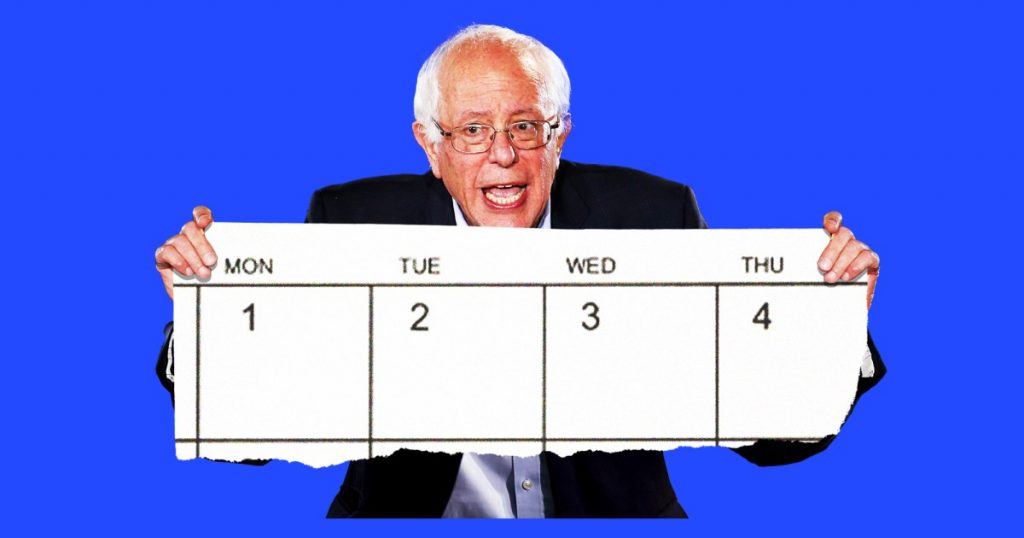Bernie Sanders Hasn’t Forgotten About the Four-Day Workweek
Mother Jones illustration; John Locher/AP; Getty
Fight disinformation: Sign up for the free Mother Jones Daily newsletter and follow the news that matters.Amid a surge of support for organized labor and the general realization that work sucks, Sen. Bernie Sanders (I-Vt.) is leading a renewed push to make the 32-hour workweek, without a loss in wages or benefits, an American reality.
The Vermont senator on Thursday unveiled a bill that seeks to establish a four-day workweek over the next four years, a proposal Sanders’ office described as critical to reducing workers’ toil, as well as timely considering the advancements workplaces will see thanks to artificial intelligence and automation.
“It is time to reduce the stress level in our country and allow Americans to enjoy a better quality of life,” a statement read. “It is time for a 32-hour workweek with no loss in pay.”
The four-day workweek enjoys overwhelming public support. Studies have shown that it can vastly improve job satisfaction and often does not lead to a loss in productivity (but actual implementation plans are vital). The United Auto Workers called for a 32-hour work week during their historic 2023 strike. Though it was ultimately cut at the bargaining table, UAW President Shawn Fein made a fresh call to enact the measure at Thursday’s hearing.
Bernie Sanders is holding a Senate hearing today on making a 32-hour workweek with no reduction in pay the standard in America.
UAW President Shawn Fain is testifying, and he says: “Those who profit off the labor of others have all the time in the world, while those who make… pic.twitter.com/u70Fr5b765
— More Perfect Union (@MorePerfectUS) March 14, 2024
Yet despite decades of efforts and a pandemic that supercharged workers’ consciousness to value their time, the shortened workweek remains elusive thanks to corporate fears buoyed by Republican opposition. That resistance was again on display at Thursday’s hearing. “Let the market decide,” Roger King, a senior attorney for the HR Policy Association, repeatedly said as he warned that the bill’s requirement for overtime pay would significantly hurt employers.
It’s unclear how Sanders expects his renewed effort to convince Republicans this time. In all likelihood, he won’t. But as more companies slide back to pre-pandemic policies, keeping the demands of labor alive in the halls of Congress appears more critical than ever.
Editor’s note: Mother Jones workers are represented by UAW Local 2103.





